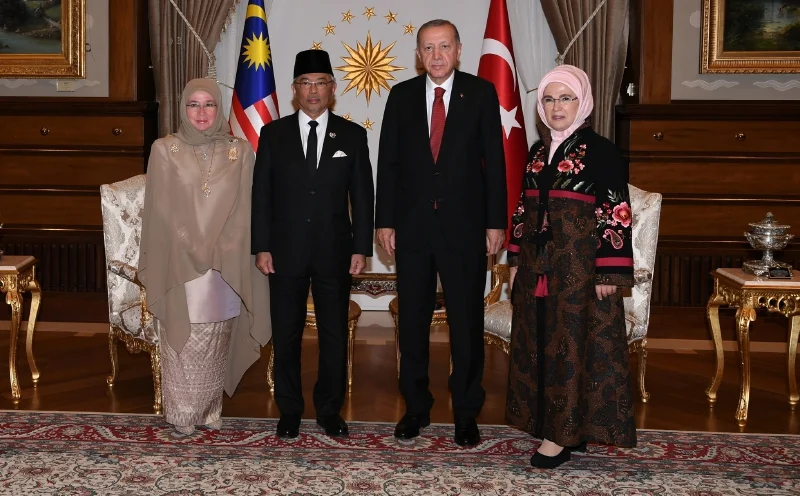Malaysia’s South China Sea (SCS) policy under the current Perikatan Nasional (PN) Government is largely consistent with its previous approach except for some minor recalibration. This article opined that although Malaysia continues to pursue a “low-profile” approach by de-emphasising the problem and suppressing nationalist sentiment over the issue, it does however, selectively display increased willingness in taking a harder stand when it comes to preserving the sovereignty and sovereign rights in the disputed waters.
On 16 April 2020, Chinese survey vessel “Haiyang Dizhi 8”, accompanied by several coast guard and maritime militia vessels have encroached into Malaysia’s Exclusive Economic Zone (EEZ) to protest on energy exploration activities conducted by Malaysia’s state-owned energy giant – Petronas. The government’s official response is quiet as usual, reflecting its long-standing preference to manage the dispute via “behind the scene” diplomacy. There was no formal public statement issued until Foreign Minister Hishammuddin released a press statement several days later, while Muhyiddin remained silent. The statement however, only reiterated some key points in Malaysia’s SCS approach rather than condemning China for its action. In fact, China was mentioned only once in the entire document.
The most recent event took place on 1 June 2021, when 16 People’s Liberation Army Air Force (PLAAF) aircrafts flew over the disputed waters off the state of Sarawak. According to the Malaysian Air Force, the aircrafts were flying in tactical formation at up to 27,000 feet, ignoring the instructions of regional air traffic control. Malaysian fighter jets were then scrambled from Labuan Air Base to intercept the aircrafts later identified as Ilyushin 11-76 and Xian Y-20 transport aircraft capable of performing various missions.[1] Chinese embassy in Kuala Lumpur claimed that the aircrafts were conducting routine flight training which is strictly abided by international law without violating the airspace of other countries.[2]
Unlike the previous West Capella incident, the plane intrusion this time was widely reported by local media and a surge of nationalist sentiment can be witnessed among Malaysians. Responding to the development, Wisma Putra on 2 June 2021 said that Malaysia will issue a note of diplomatic protest and ask the Chinese ambassador to explain the intrusion. “Malaysia’s stand is clear – having friendly diplomatic relations with any countries does not mean that we will compromise on our national security”, said Hishammuddin.[3] Few days later on 4 June 2021, a CCG vessel was again detected encroaching Beting Patinggi Ali. But this time, there was no official response from the Malaysian government as the intensity of public opinion on the issue began to subside.
Keeping quiet on Chinese increasing assertiveness and frequent intrusion in the SCS will no doubt further tarnishing the already low and shaky charismatic legitimacy of PN coalition. But opening up another front on the SCS issue needs careful calculations and balancing due to three major constraints: political instability in the country; the importance of China as major trading partner; as well as the limitation on Malaysia’s own military capabilities.
Since PN took over the government in March 2020, Muhyiddin has been preoccupied in consolidating his political power in ensuring the survival of his fragile coalition that came into power through a political coup. He was also left to deal with the current of unprecedented economic and health challenges due to the outbreak of Covid-19 pandemic. The recently imposed nationwide Full Movement Control Order (FMCO) witnessed a spike of grievances among Malaysians towards the government’s inability in handling the crisis. Mounting desperation among the people can also be reflected through the White Flag Campaign, where Malaysians signal their distress by raising white flag in front of their houses, particularly those in need of food and other essentials due to job losses and slashed income as a result of the indefinite lockdown.
Meanwhile, Malaysia needs to avoid antagonising China in advancing the country’s economic interests and prevent maritime dispute from overshadowing the relations. China has been Malaysia’s largest trading partner for 12 consecutive years and expected to be the largest foreign direct investment source in manufacturing sector for five consecutive years. Despite the downward pressure from global economy and multiple challenges posed by the pandemic, China-Malaysia bilateral trade has increased about 3.5 per cent from January to October 2020. In fact, the two countries also have been working closely in pandemic prevention and control, vaccine development and post Covid-19 cooperation.
The eschewed military response to Chinese incursion is not only to preserve friendly relations with Beijing, but also due to the limitation of our own Armed Forces. At present, the Malaysian Armed Forces are under-funded and under-equipped. Available resources have to be stretched thin in dealing with other various security threats including piracy. Therefore, the need for Malaysia to strengthen its maritime capabilities and build more credible partnership in the region is crucial so that it can better defend its sovereignty and sovereign rights in the SCS.
These are the dilemmas hindering Muhyiddin from taking either solely confrontational or passive approach towards China in the dispute. And thus, explaining why the PN Government continues to play it safe by keeping a low profile in the issue, but selectively display harder stand when it needs to for the sake of ensuring the stability of domestic politics and subsequently the survival of the PN regime.


